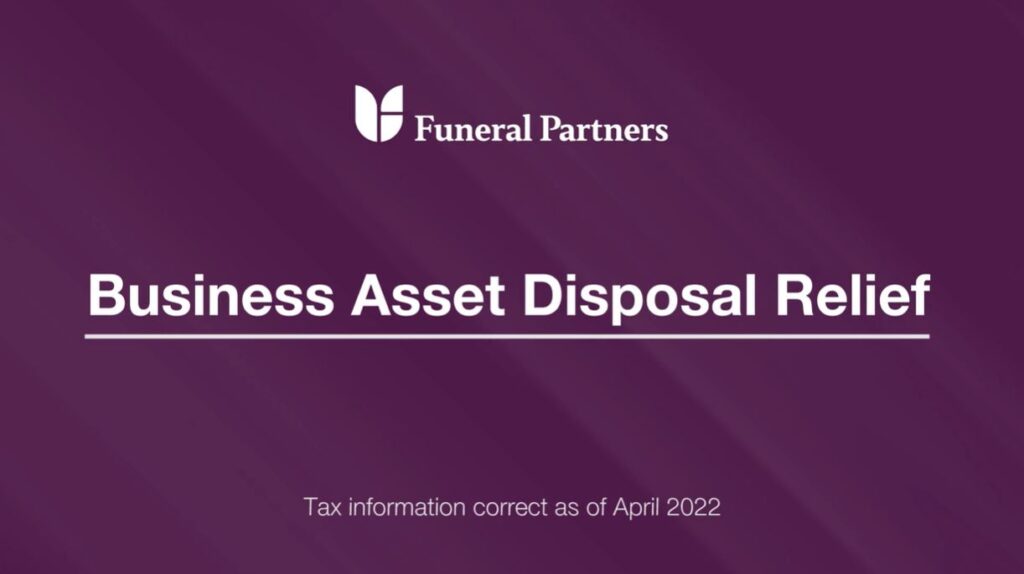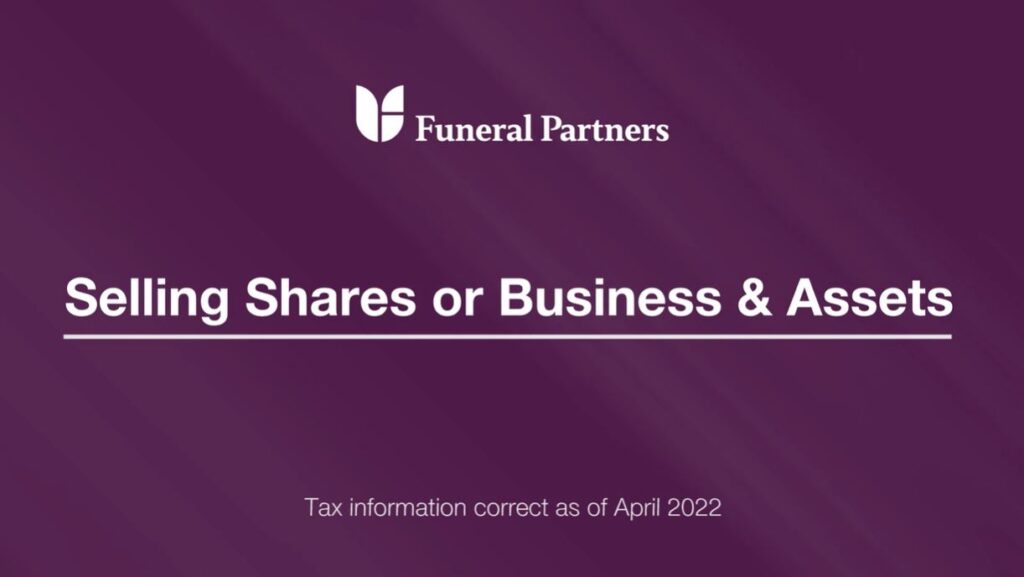Selling a Funeral Home Business - Property
Home / Becoming a partner / Why choose Funeral Partners / Tax Considerations – Property
Hello, I’m Steve Wilkinson, Mergers and Acquisition Director, Funeral Partners and today I’m joined by Bob Neal, a tax partner, at Freeths.
Bob, when we’re talking to business owners, a common question we get asked is about property. If a business owns the property, but they want to keep it themselves personally, what can they do?
Yes, that’s something we see regularly at Freeths as well. It is generally possible to achieve exactly what they want, but I should be clear, this is a complex area. We’ll only be able to scratch the surface of it today.
It’s not just about the tax. Of course it needs to be decided what’s going to happen to property going forward with the business.
Often the business is going to keep operating from the same premises. So that means a sale and lease back.
That’s right. And by doing the sale and lease back at the same time as the sale of the company, it’s always possible to structure it so that the sellers are effectively able to extract the property from the company at capital gains tax rates, which is normally 20% and is much lower than dividend tax rates of course.
The full process is quite complex, but it should all be handled by the legal advisors who are dealing with the sale of the company. Depending on the property base cost, there may be a corporation tax liability for the company as well. So that would need checking too.
Is there any other tax that needs to be paid.
Well, there is stamp duty land tax, of course, which applies generally to property transfers depending on the plans for using the property going forward. Sometimes it’s possible to structure things to avoid triggering stamp duty land tax though. The other thing to bear in mind is inheritance. If the plan is to gift some or all of the property onto the next generation or even beyond, then inheritance tax is important to check.
If the idea is to gift some or all of the property onto the next generation or even beyond then it’s important to build this into the planning from the outset. The chances are, it will be like any gift, a potentially exempt transfer. And that simply means there’s no inheritance tax. As long as the person making the gift survives at least seven years from the date when it’s made.
Thanks, Bob, that’s really useful. And it really gives people an idea of things to think about from a funeral partners perspective. We’re flexible, either way. You can either keep the property and we can lease it from you or we can buy the property with the business
We have called on the expertise of Bob Neal, Tax Partner at Freeths Solicitors to answer some important questions about Property, Selling Shares or Business & Assets and Business Asset Disposal Relief.

